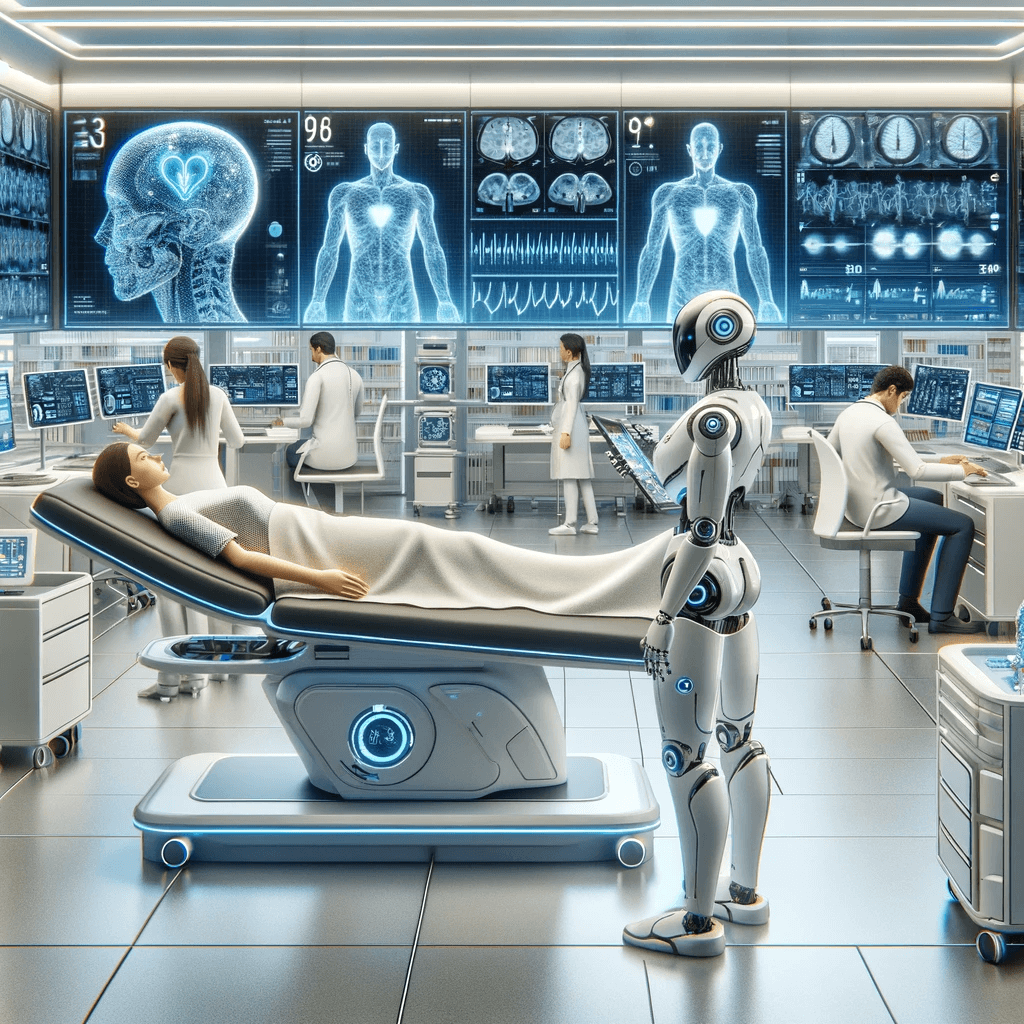
In recent years, the field of healthcare has seen a significant shift with the incorporation of AI technologies in disease diagnosis and patient care. From streamlining the diagnostic process to personalizing treatment plans, AI has revolutionized the way healthcare professionals approach patient care. With the ability to analyze vast amounts of medical data at a rapid pace, AI offers the potential to improve accuracy in disease diagnosis and provide more efficient and effective treatment options. In this blog post, we’ll explore the impact of AI on disease diagnosis and patient care, highlighting the benefits and challenges of integrating these technologies into the healthcare industry.
AI In Disease Diagnosis
Artificial Intelligence (AI) has made significant strides in recent years, particularly in the field of disease diagnosis. With the ability to process and analyze vast amounts of data at incredible speeds, AI has the potential to revolutionize the way we diagnose and treat diseases. From identifying patterns in medical imaging to predicting patient outcomes, AI is poised to significantly impact the healthcare industry.
One of the key advantages of AI in disease diagnosis is its ability to detect patterns in medical images that may not be discernible to the human eye. By analyzing thousands of images, AI algorithms can quickly identify abnormalities and help radiologists make more accurate diagnoses. This not only reduces the risk of misdiagnosis, but also allows for earlier detection of diseases, leading to better patient outcomes.
Furthermore, AI technologies can analyze a patient’s medical history, genetic information, and lifestyle factors to create personalized treatment plans. By taking into account a multitude of variables, AI can help physicians make more informed decisions about the best course of treatment for each individual patient. This personalized approach to disease diagnosis and treatment has the potential to greatly improve patient care and reduce healthcare costs in the long run.
Revolutionizing Patient Care with AI Technologies
Artificial Intelligence (AI) has revolutionized many industries, and healthcare is no exception. With the advancement of AI technologies, patient care has been significantly improved, leading to more accurate diagnoses and better treatment plans.
One of the most significant contributions of AI in patient care is in disease diagnosis. AI algorithms can analyze vast amounts of medical data and identify patterns that human doctors may miss. This can lead to earlier detection of diseases, which can be critical in improving patient outcomes. Additionally, AI can assist healthcare providers in personalizing treatment plans based on the patient’s unique medical history and genetic makeup.
AI technologies have also improved patient care through the development of virtual health assistants and chatbots. These tools can provide patients with round-the-clock access to medical advice and information, reducing the need for unnecessary doctor visits and improving patient satisfaction. In addition, AI-powered predictive analytics can help healthcare providers anticipate patient needs and intervene before health issues escalate.
Frequently Asked Questions
AI is being used in disease diagnosis to analyze medical data, identify patterns, and assist doctors in making accurate diagnoses.Some examples of AI technologies revolutionizing patient care include virtual assistants for patient monitoring, predictive analytics for early detection of diseases, and robotic surgery.AI can improve the accuracy of disease diagnosis by analyzing large amounts of patient data, detecting subtle patterns that may be missed by humans, and providing real-time insights to healthcare professionals.The benefits of using AI in disease diagnosis include faster and more accurate diagnoses, personalized treatment plans, improved patient outcomes, and reduced healthcare costs.Yes, some challenges and limitations in implementing AI in disease diagnosis include ensuring data privacy and security, addressing ethical concerns, and integrating AI technologies with existing healthcare systems.AI technologies can support doctors in their decision-making process by providing them with valuable insights, recommending treatment options, and alerting them to potential risks or complications.The future of AI in disease diagnosis and patient care holds great potential. It is expected to further enhance precision medicine, facilitate remote patient monitoring, and enable more personalized and efficient healthcare services.






